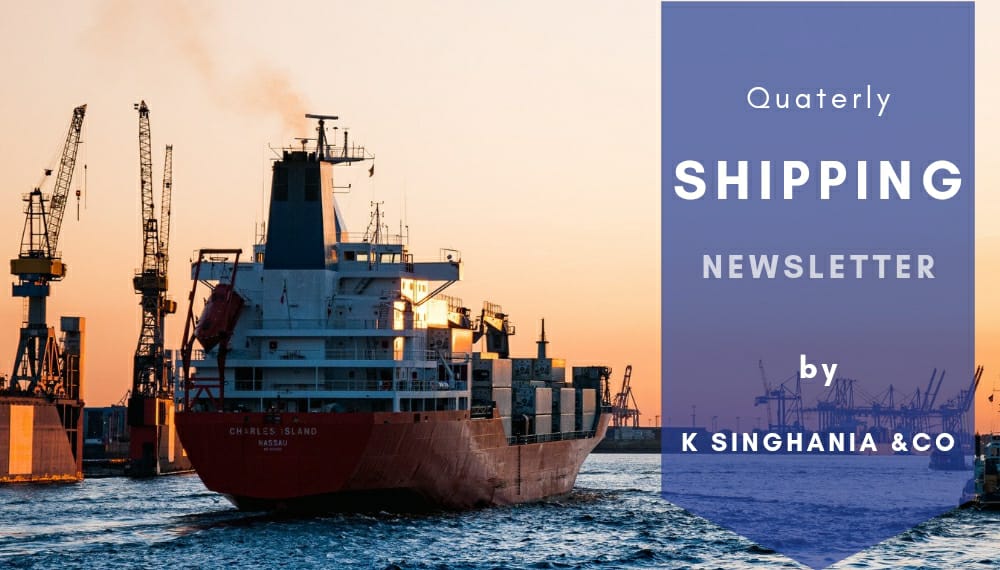Introduction
The Admiralty (Jurisdiction and Settlement of Maritime Claims) Act, 2017 (“Admiralty Act”) is a special law which aims to consolidate the laws relating to admiralty jurisdiction, legal proceedings in relation to vessels, their arrest, sale and other incidental matters.
Whereas,The Insolvency and Bankruptcy Code, 2016 (“ IBC”) is a special statute devoted entirely to resolution of insolvency, liquidation and bankruptcy of corporate persons and firms and individuals,[1] with the NCLT being vested with the jurisdiction to hear such matters.
Since the introduction of the Admiralty Act, 2017, questions pertaining to overlap and possible conflict between the two statutes has arisen. One such case was before the Bombay High Court in the instant case.
Facts
The Bombay High Court issued arrest warrants on vessels whose owners were bankrupt. Under the Companies Act, 1956, the High Court issued a winding-up order against one of the ship owners. In the meanwhile, the National Company Law Tribunal initiated bankruptcy proceedings against another ship owner, and a moratorium was imposed on the initiation or continuation of any actions against that owner and its assets under the Insolvency and Bankruptcy Code, 2016 (IBC).
The official liquidator in the winding-up proceedings objected to the continuing of the admiralty procedures without the permission of the Company Court under Section 446 of the Companies Act, 1956. Concerning the bankruptcy proceedings against the second vessel owner, the maritime claimants contended that the moratorium under the IBC would not prohibit the continuation of the admiralty procedures in the Bombay High Court.
The following questions were raised before the Bombay High Court:
Issue 1:
Is there a conflict between actions in rem filed under the Admiralty Act and IBC and if so, how is the conflict to be resolved?
The Court after hearing elaborate submissions observed that its endeavor would be to give effect to both statutes and their objectives so as to avoid conflict.
The Court held that a maritime claimant had a statutory right in rem that could not be subordinated to the IBC. Those maritime claimants, who arrested the ship according to the Court, would be characterized as secured creditors for insolvency purposes.
According to the court, maritime claimants apart from being treated as secured creditors should ordinarily be ascribed full value for their claim and the scheme of priorities under the Admiralty Act should be adopted in the resolution plan. The Court ruled that vessels arrested before the moratorium can only be released by the Admiralty Court, upon full payment of security.
Issue 2:
Whether leave under Section 446(1) of the Companies Act is required for the continuation of an Admiralty action where a winding up order has been made or the Official Liquidator has been appointed?
The Court observed that the Admiralty Act is a consolidated enactment dealing with ship arrest, maritime claims, judicial sale of ships, etc. Admiralty Court’s jurisdiction was determined to be distinct from that of regular civil courts. An Admiralty Court judicial sale of a ship at a public auction is free of any past claims, liens, and encumbrances, and the auction buyer receives a clean title free of any maritime liens, claims, or encumbrances. This is not like a property sale handled by the Company Court. The Court accordingly held that no leave of the Company court was required as the Admiralty Act, 2017 being a special enactment, would prevail over Companies Act, 1956.
Comments:
In light of the above judgment passed by the Bombay High Court the intention is clear that an admiralty action in rem can be brought both before and after the moratorium is proclaimed, and even after the corporate debtor has commenced liquidation. This action is much welcomed and represents a significant step forward in preserving the interests of parties with a legitimate maritime claim who wish to pursue their claim through an action in rem.
The Marine Aids to Navigation Act, 2021
The Marine Aid to Navigation Bill (“the Bill”) was introduced in Lok Sabha on 15th March, 2021 and passed on March 22, 2021. Rajya Sabha in July, 2021 passed the Bill which replaced an over 90 years-old law governing lighthouses and provides a fresh framework to establish and manage vessel traffic services. The Bill received the President’s assent on 31st July, 2021.
The Marine Aids to Navigation Act, 2021 (“the Act”) provides for the development, maintenance and management of aids to navigation in India; for training and certification of the operator of aids to navigation, development of its historical, educational and cultural value. It has been brought to ensure compliance with the obligations under the maritime treaties and international instruments to which India is a party.
The Act provides a legal framework for the sector to meet the latest technologies and meet the requirements of best global practices for safe and secure navigation and protection of the marine environment.
Comments:
In order to modernize the legal framework for emerging technologies employed in vehicle navigation and Long Range Identification and Tracking systems the Act has been introduced and it is considered a step forward in providing holistic progress and development in the field of marine navigation. The Act will help fishermen, coastal and international trade, and lighthouse tourism. Furthermore it will encourage safe aligning with the latest forecast technology and pollution-free navigation in Indian waters.
Delhi High Court dismissed a petition filed by traders seeking a remission of punitive detention costs and ground rent imposed by Inland Container Depots (ICDs) and Container Freight Stations (CFSs) during the COVID shutdown.
[M/s Polytech Trade Foundation vs Union of India & Ors [WP(C) No. 3029/2020]
The Delhi High Court disposed of a plea filed by traders seeking waiver of penal detention charges and ground rent levied by the Inland Container Depots (“ICDs”) and Container Freight Stations (“CFSs”) during the COVID lockdown.
Facts
Importers and exporters pay fees to Shipping Lines, ICDs, and CFSs for the holding of imported goods prior to their release by Customs following payment of duty. Penal detention costs are imposed by ICDs/CFSs for the duration beyond a set number of “free days” during which the products remain in their premises and by shipping lines if the containers are not returned to them within a fixed number of “free days.”
There was significant interruption in the flow of commodities as a result of the COVID-2019 epidemic. As a consequence, the petitioners were unable to remove the imported products from the ICDs/CFSs’ premises or return the containers to the shipping lines within the allotted number of “free days.”
The petitioners claimed that they were entitled to a waiver of penal detention charges and ground rent during the lockdown period due to instructions contained in Office Orders and Circulars issued by the Ministry of Shipping (“MOS”), Directorate General of Shipping (“DGS”), and Central Board of Indirect Taxes and Customs (“CBIC”). The dealers claimed that they were unable to transfer or transport their items throughout the specified time frame.
Conclusion of the court
The ICDs and CFSs contended that numerous importers had their products released even during the lockdown, sometimes taking advantage of the discounts given by the ICDs and CFSs.
This, according to the Bench, demonstrates that there was no inherent inability, even throughout the lockdown period, in obtaining the release of the imported products.
“The fact that some importers were successful in obtaining such a release suggests that, if other importers were unable to do so, the reason for such inability would have to be reviewed on a case-by-case basis.”
Bombay High Court dispenses with the requirement of serving notice on the caveator on findings that the security offered by the caveator does not secure the interest of plaintiff
[Mr. Rahul Rastogi vs MT. BON ATLANTICO (Commercial Admiralty Suit No.17463 of 2021)]
Facts
In the instant Suit, the Plaintiff was seeking judgment and decree against the Defendant Vessel, and the arrest, sequestration, condemnation and sale of the Defendant Vessel, for securing or satisfying the Plaintiff’s claim of the principal amount as well as for cost of litigation in India, (aggregating to USD 23,400) with further interest at the rate of 18% per annum from date of the suit till payment and/or realization as per the particulars of claim. The claim arose out of services provided by Plaintiff as Master of the Vessel under employment agreement.
Plaintiff moved a Judge’s Order ex-parte in the matter upon circulation for urgent relief for arrest of the Defendant Vessel as there was an apprehension that the the Defendant Vessel which was at anchorage of the Port of Mumbai, may sail out of the jurisdiction of the Court anytime.
According to the Plaintiff, he had an irrefutable claim against the Defendant Vessel. If the Defendant Vessel is permitted to sail, the Plaintiff will have no legal recourse whatsoever to recover the amounts due to it and its security will be lost forever and eventually his proceedings will be rendered infructuous.
The Court in this matter observed that the owner of the Defendant’s Vessel has filed a caveat against the arrest of the Defendant Vessel. However, the security offered under the Caveat was only Rs.5000/-. The Plaintiff stated that the claim of the plaintiff is in USD 23,400 and the security offered was Rs.5000/-.
Held
The Court in this matter relied upon its earlier judgment that if the plaintiff satisfies the Court that the amount of security mentioned in the caveat is so low that it does not secure his interest, in such a case, the plaintiff will also be entitled to move the Court for dispensing with the requirement of serving notice on the defendant under Bombay High Court Original Side Rule 939 i.e. Property may be arrested notwithstanding Caveat.
Hence, the Court directed the arrest of the Defendant Vessel until the satisfaction of the Plaintiff’s claim to the tune of USD 23,400.
The requirement under Bombay High Court Original Side rules is that the caveator should deposit a sum of which he is willing to give security sufficiently to secure the plaintiffs claim Further, it requires the caveator to mention the amount he is willing to give security.
If according to the Plaintiff, the amount mentioned in the caveat is ridiculously low and it is not enough to safeguard the interest of the Plaintiff, Rule 939 permits the Plaintiff to move the Court for arrest of the vessel despite the caveat being filed. To make a prima facie case the security offered by the caveator is essential as Rs.5000/- deposited by the caveator was low and the caveator knowing the invoice amount having received the invoice and prima facie acknowledging its debts but still files caveat offering security of Rs.5,000/-. Hence, in such cases it is settled law that the requirement of serving notice or copy of plaint before arrest, on Defendant by plaintiff will be dispensed.






